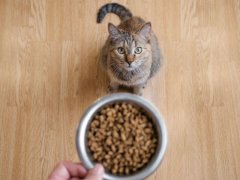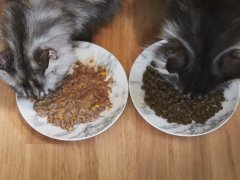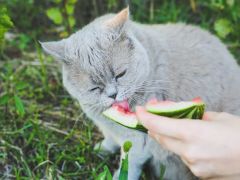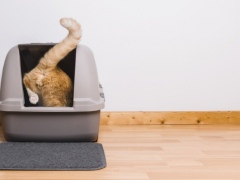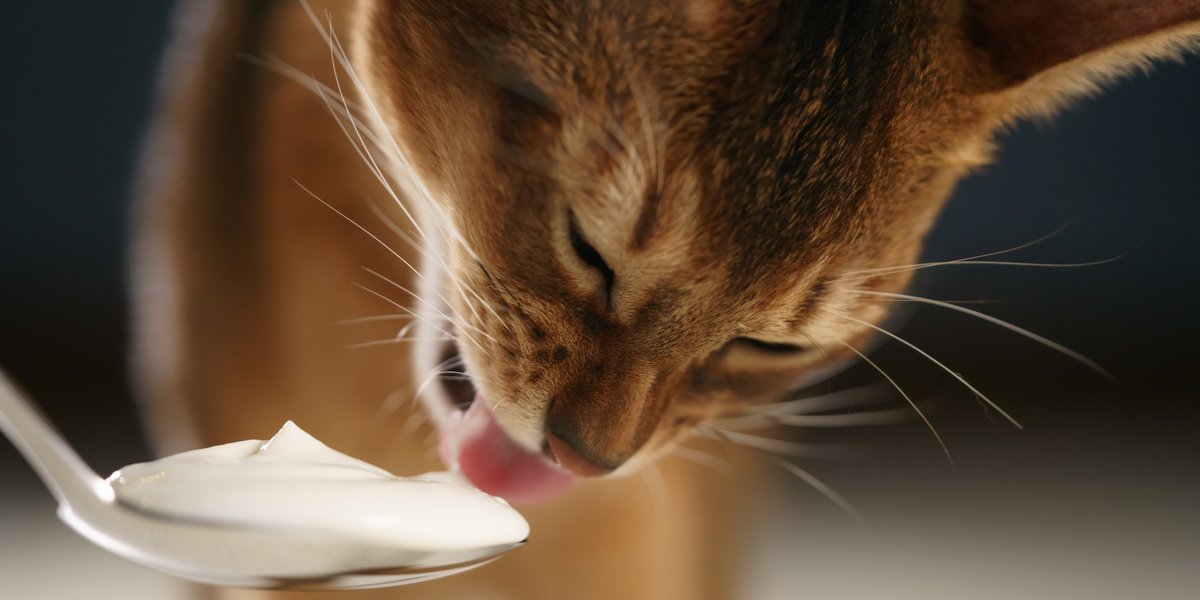
Yogurt is a really popular food that is available in a variety of types and flavors. People enjoy plain yogurt, Greek yogurt, soy yogurt, and even frozen yogurt, but what about your cat? Can cats eat yogurt? Is it a good choice for a snack or a treat for your feline friend? Or is it best avoided? Well, the answer isn’t straightforward.
Is Yogurt Good for Cats?
On the one hand, a small amount of plain or Greek, low-fat yogurt shouldn’t do your furry family member any harm. However, cats are lactose intolerant, meaning that all dairy products can cause an upset stomach, vomiting, or diarrhea. Therefore, you should only give your cat yogurt occasionally and in small amounts.
Also Read: High Blood Pressure In Cats (Hypertension): Causes, Symptoms, & Treatment
Benefits of Yogurt for Cats
Aside from the nutritional benefits listed above, plain yogurt can also be helpful for giving medication to your cat. If you have a feisty feline or one that just won’t take tablets, you could use a small amount of low-fat, plain yogurt to disguise it.
Also Read: 9 Safe & Healthy Human Foods Cats Can Eat
Take care with long-term medication, though, as too much yogurt could upset your cat’s tummy, leading to vomiting or diarrhea. It could also cause them to gain weight, so if you’ve got a pudgy puss, you might want to choose a healthier snack!
How Much Yogurt Can a Cat Eat?
Cats shouldn’t have too much yogurt because they are lactose intolerant. This means that they lack the enzyme lactase, which breaks down the sugar found in dairy products. Every cat is different, so some may cope with a larger amount, while others might get symptoms like vomiting or diarrhea after even the tiniest amount.
A good rule of thumb, if your cat has never tried yogurt before, is to give a small amount, the size of your little fingernail, first. If your cat doesn’t get any symptoms, you can try a slightly larger amount next time.
However, a teaspoonful of plain, low-fat yogurt is more than enough to give a cat at any one time. Remember, although we might enjoy cherry yogurt, blueberry yogurt, peach yogurt, or any other flavor, your cat should only have plain yogurt.
How Often Can a Cat Eat Yogurt?
As a pet parent, you’ll probably have looked into which cat food is best to feed your furry friend. Good-quality, nutritionally complete cat foods will contain all the nutrients your cat needs in the right quantities and balance.
If you feed your cat too many little extras, you don’t just risk them gaining weight; you might also risk upsetting the finely tuned balance of their diet. So, if you’re wondering how often you should give your cat yogurt, around once a week or less would be reasonable.
Do Cats Like the Taste of Yogurt?
Many cats love the taste of yogurt, which seems a bit unfortunate considering they’re lactose intolerant. You might feel a bit mean restricting the amount and type of yogurt they have, but it’s in their best interest.
After all, too much yogurt could cause them vomiting, bloating, diarrhea, or gas, as well as causing them to pile on the pounds. On the plus side, the fact that cats tend to enjoy the taste means that yogurt can be the perfect solution for a cat that doesn’t want to take their medication!
Is Yogurt Used in Commercial Cat Food?
Although it’s not used in commercial cat food, certain cat treats contain yogurt. If your cat’s regular treats have yogurt, you don’t need to worry – they are unlikely to cause any problem. However, please don’t give them too often, as treats shouldn’t make up more than ten percent of your cat’s daily calorie intake.
Is Yogurt Bad for Cats?
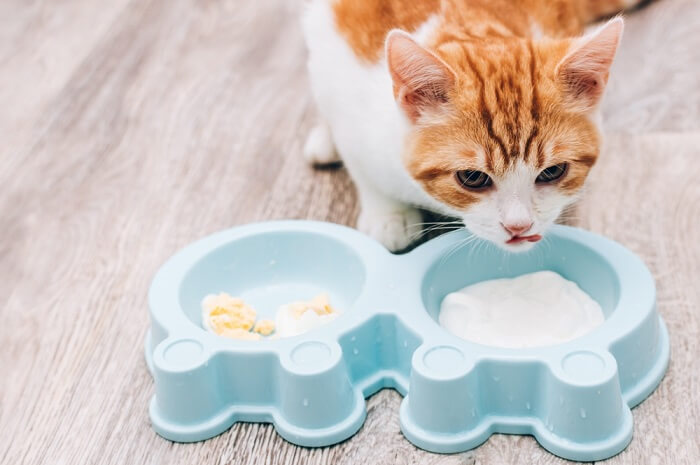
It’s best to give your cat yogurt on its own, rather than as part of a pre-made meal or dessert, so that you’re sure there are no extra ingredients that could harm your cat.
There are a few risks with feeding your cat yogurt, and aside from the risk of an upset tummy from dairy intolerance, most can be avoided. Firstly, to avoid accidentally giving your cat a toxic ingredient, you should choose plain, unflavored yogurt varieties.
It might seem boring, but your cat should have plain yogurt rather than vanilla yogurt, strawberry yogurt, or other flavored varieties. You should also check the ingredients to ensure they don’t contain any sweeteners, including xylitol, which is also poisonous.
It’s best to give your cat yogurt on its own, rather than as part of a pre-made meal or dessert, so that you’re sure there are no extra ingredients that could harm your cat. Choosing a low-fat option is also sensible because foods that are high in fat could cause your kitty to get pancreatitis.
Summary
Although cats are lactose intolerant, they can generally eat small amounts of plain, low-fat yogurt without any ill effects. However, it’s best not to give them too much, no matter how much they like it, because it might upset their tummy.
